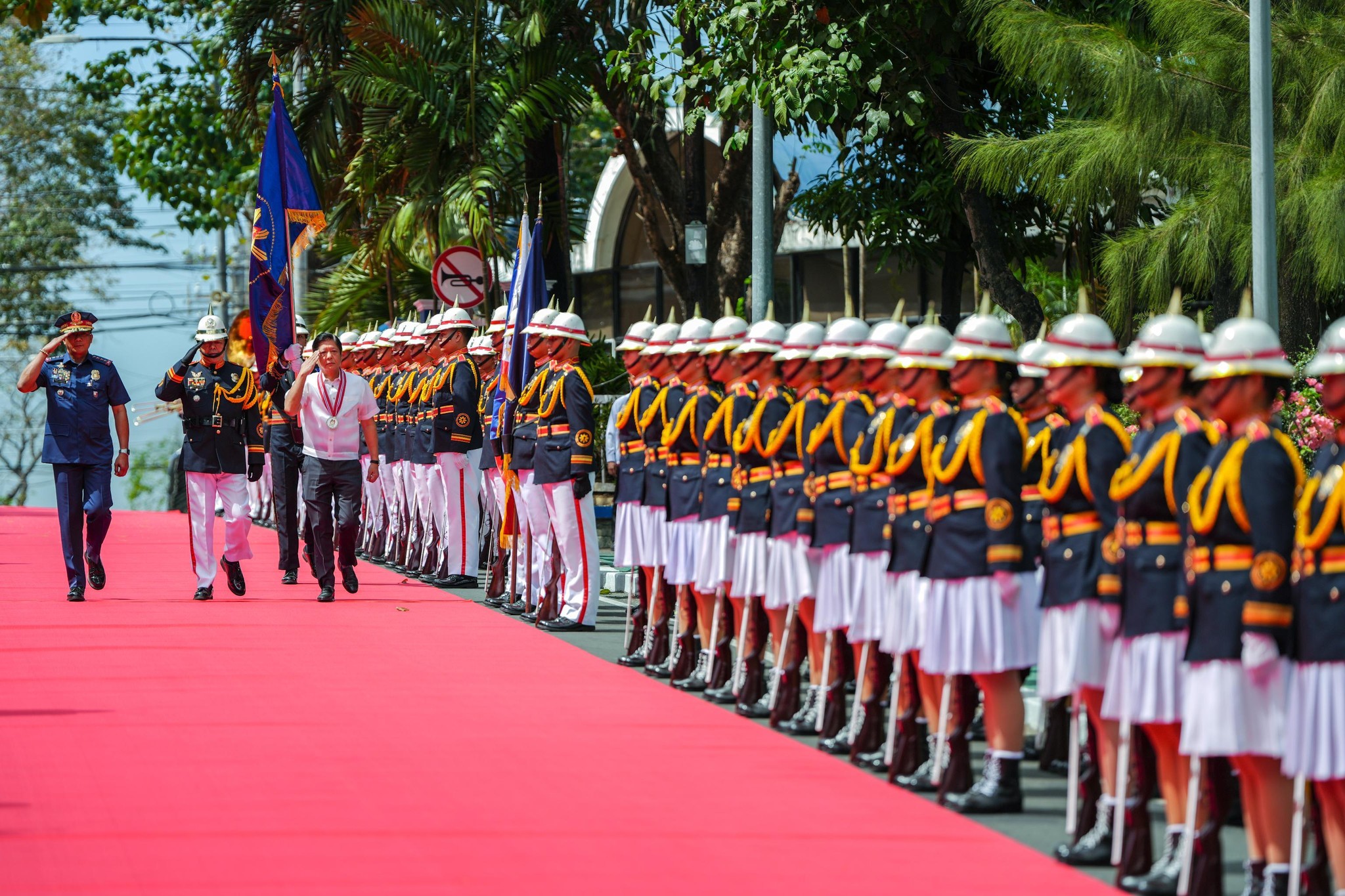
By Brian Jules Campued
President Ferdinand R. Marcos Jr. stressed the need to establish a good communications system within the Philippine National Police (PNP) as he ordered the police to be more strategic in procuring the necessary equipment to improve its interoperability during emergencies and crisis situations.
President Marcos directed PNP chief Gen. Benjamin Acorda Jr. to improve the organization’s communications capacity during a command conference with the PNP in Quezon City on Thursday.
“We have to be able to communicate to each other, lalung-lalo na dito sa mga disaster response. Kailangan alam natin kung ano ‘yung situation on the ground. Kailangan ‘yung nandoon na pulis, makapag-report kaagad na may nangyari, ganito yung situation, ito yung kailangan namin,” Marcos said.
The President also raised concern about the reported low equipment capacity of the PNP.
According to Malacañang, the national police is still far from filling up at least half of its requirement for communications equipment – recording a 32.05% fill-up for digital radio, 33.98% for tactical radio, and 2.48% for satellite phones as of Feb. 14.
The PNP has yet to complete its purchase of 18 units of conventional repeaters amounting P54 million and 80 units of satellite phones amounting to P6.5 million under its Capability Enhancement Program (CEP) 2023.
“We really need to come up with a plan to improve the communications capability of PNP. You cannot do your job without being able to communicate because mag-aantay kayo ng instructions, magre-report kayo sa Central Office, et cetera,” the President noted.
For the CEP 2024, the PNP is eyeing to procure 2,039 units of body-worn cameras, one unit of digital trunked radio system, an additional 18 units of conventional repeaters, and 420 units of VHF low band handheld radio, costing approximately P585 million.
The PNP said that while the procurement under CEP 2024 is delayed due to issues in the Terms of Reference, it likewise assured the public that the issue is being addressed – noting that they target to accomplish both CEPs within this year.
When the procurements are completed, the PNP’s fill-up rate would rise to 32.07% for digital radio, 39.17% for tactical radio, and 6.03% for satellite radio.
Meanwhile, the President told the PNP to study other communications equipment that may be suited for local situations and look into those being used by police forces in other countries.
“So, tignan ng mabuti what it is that we can do so we can provide our people with the best possible communications equipment,” Marcos added.
He also reminded them to make sure that all communications equipment are standardized to ensure interoperability across the country, citing the need for a secured network that provides better communication between units and offices within the PNP.
“Kahit ‘yung pulis malipat sa ibang lugar, pareho pa rin ang gamit, pareho pa rin ang procedure, pareho pa rin ang sistema. So, I think that is [a] very important thing: there has to be consistency,” the Chief Executive remarked.
Anti-cybercrime efforts
Meanwhile, the President also directed the PNP to strengthen its anti-cybercrime efforts considering the spike in cases to 21,300 in 2023 from 13,890 in 2022.
Marcos added that the police force should intensify its prevention, detection, and investigation of cases to combat cybercrimes given the evolving technology-based crime modalities.
PNP records from July 1, 2022 to Jan. 31, 2024 revealed that online scams topped the list of cybercrime cases at 15,937, followed by illegal access (4,821) and computer-related identity theft cases (2,384).
“So, we have to build our cybercrime unit from scratch. Now, we need experts to do this. Magaling ang Pinoy. So, for whatever reason, magaling ang Pinoy sa IT (information technology), we seem to have a talent for it,” Marcos said.
The PNP has already proposed to establish a cybersecurity center to monitor and detect cybersecurity issues as well as protect and respond to cyber threats in the agency’s ICT infrastructure. – avds
